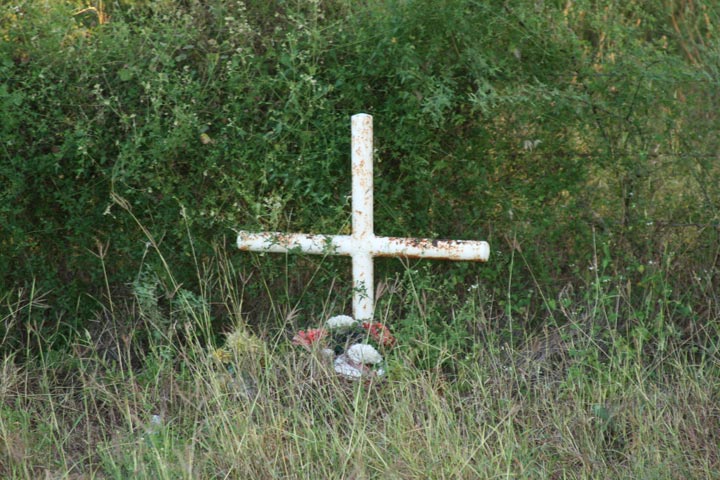 I am terribly saddened by the death of my brother's and sister-in-law's niece, 16. She died last week, several days after a severe car accident that was survived by the three other teens who were in the car. She was a passenger in the rear seat. I don't know all the details of the accident.
I am terribly saddened by the death of my brother's and sister-in-law's niece, 16. She died last week, several days after a severe car accident that was survived by the three other teens who were in the car. She was a passenger in the rear seat. I don't know all the details of the accident.There are, of course, reams and reams of statistics on teen driving accidents and scientific research in neurology and sociology that try to explain some of this. Many states have taken actions such as progressive licensing, driver training, seatbelt laws, and more to protect our teenagers essentially from themselves and their friends--and not without some results. Teenage driving deaths have declined over the last fifteen years.
However, thousands of teenagers continue to die in car accidents every year, and teens will always be more likely to have accidents than others no matter what we do, because of their inexperience as drivers and their not-yet-completely-developed judgment. This second point is not a criticism of teenagers; it's a neurological fact. When it becomes personal, though, all of this information is meaningless. My family has lost a loved one, a piece of our lives that cannot be replaced.
Everywhere I read about the teenage driving "epidemic" (if it were a disease killing thousands of teenagers every year, imagine the response of our government), the solutions are always about changing licensing, rules, training, parental responsibility, etc. Never do I read about changing society so that teens (and others) just don't need to drive--or as much.
A significant part of this problem lies in the way we have created our urban and suburban forms. Teenagers want to have fun; they want to be with their friends; they want to take advantage of things going on in and around their schools and communities. In most communities, however, the only way they can do these things is to drive or be driven. This blog is about transformation--primarily to reduce our environmental impacts. But transforming the way we develop our communities will provide so many additional benefits, too.
If our teens could easily walk or take the bus or rail to where they want to go. If they could safely bike to their friends' houses and to the local shops and theaters. If the fun stuff they want to do was accessible to them. I believe not only would that improve the quality of their lives--and their parents' lives, but it might save hundreds of their lives, too. Somehow we have to change the culture, too. Driving is cool to many teens; I can't change that in the short term. In the long run, though, perhaps we can.
 The way we design and develop our cities and our transportation systems has to change. We are not on a sustainable path: not environmentally sustainable, not culturally sustainable, not economically sustainable. My brother's niece is gone. . .forever. Another 10 teens will die today in auto accidents. As the father of a 15-year old, I'm not in favor of limiting our childrens' opportunities as a solution (one of the criticisms of raising driving ages and graduated licensing). Instead let's re-create our land use forms and our transportation systems in ways that make our lives better AND safer AND less resource intensive all at once.
The way we design and develop our cities and our transportation systems has to change. We are not on a sustainable path: not environmentally sustainable, not culturally sustainable, not economically sustainable. My brother's niece is gone. . .forever. Another 10 teens will die today in auto accidents. As the father of a 15-year old, I'm not in favor of limiting our childrens' opportunities as a solution (one of the criticisms of raising driving ages and graduated licensing). Instead let's re-create our land use forms and our transportation systems in ways that make our lives better AND safer AND less resource intensive all at once.R. S. vT., may you rest in peace.




Steve, this is so heartbreaking... if only more people would understand that saving our environment is about more than our earth... it's about our lives. My thoughts are with our family and their niece's family at this very sad time.
ReplyDelete